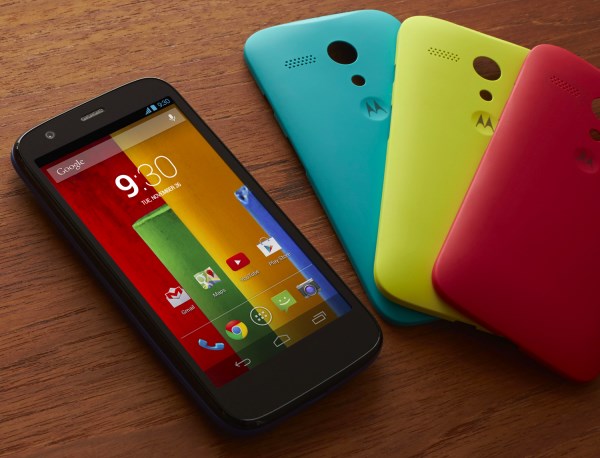
Motorola matters once again in Europe
Before Motorola brought the Moto G and Moto X to Europe, the company's presence on the old continent was lackluster at best when it came to smartphones. The best consumers could get, and only in a small number of markets, was the dated Razr HD that seemed to be aimed solely at the brand's fans and keeping the Motorola name alive. The maker had thrown in the towel, trailing behind the likes of Apple and Samsung.
The Moto G and, later, the Moto X have put Motorola back on the smartphone map. "Motorola was nowhere in Europe before the Moto G launched in November last year, but the new model has since boosted the manufacturer to 6 percent of British sales", says Kantar Wordpanel ComTech strategic insight director Dominic Sunnebo. "It highlights the speed at which a quality budget phone can disrupt a market".

Beware of third-party Google-branded Windows Phone apps
The official launch of major Google apps on Windows Phone would qualify as the biggest news of the week, next to the release of Office for iPads. Such an event seems highly unlikely, as the search giant is focusing its mobile development efforts on the more popular platforms, namely Android and iOS.
Imagine my surprise when, only moments earlier, in group chat my colleague Alan Buckingham mentions these five Google apps, that seem legit at first glance: Hangouts, Voice, Maps, Search and Google+. They are now available in the US Windows Phone Store. Did the search giant just have a change of heart? The answer appears to be negative, as, first-off, Google does not sell such apps for $1.99 a pop, it makes them available for free. But, what is so special about them anyway? It is not like these are the only third-party Google apps in Store.

Lonely Windows Phone owners can now find dates with eHarmony app
The life of a Windows Phone user is a lonely one. With such a low market share, the odds of meeting a fellow user in public is quite rare. This is in contrast to Android and iPhone, where it seems like you can see those users everywhere you look.
However, some of these users may be lonely in another regards too -- dating and mating. In today's fast-paced world, it can be hard to find a date in person, so online dating has become all the rage. Unfortunately for Windows Phone users, there was no app for eHarmony; one of the most popular and successful dating sites. Today, however, that changes as eHarmony is available for Windows Phone. Get your online dating on y'all!

Nokia launches Windows Phone 8 Pocket Magnifier app for the visually impaired
Nokia has launched a new Windows Phone 8 app aimed at the visually impaired. The offering, called Pocket Magnifier, was developed in collaboration with the UK Royal National Institute of Blind People, and is available exclusively for the Finnish maker's Lumia lineup.
As the name implies, Pocket Magnifier works like a digital magnifier glass that folks can point at various items for magnification. The app has a couple of features that are meant to augment this functionality, so let us take a look at them.

Microsoft's purchase of Nokia's Devices & Services arm to close next month
When the sale of Nokia's Devices & Services, the company's phone-making arm, to Microsoft was announced in September last year, the process was expected to complete by the end of Q1 2014. As the initial deadline is rapidly approaching, the Finnish manufacturer reveals the software giant will have to wait a little more to get control of the business.
"Nokia today announced that it now expects the transaction whereby the company will sell substantially all of its Devices & Services business and license its patents to Microsoft to close in April 2014", says Nokia. "This compares with Nokia's previous expectation on the transaction closing in the first quarter of 2014, which Nokia communicated when the company first announced the transaction on September 3, 2013. Nokia and Microsoft remain committed to the transaction".

Manage your passwords, credentials with oneSafe for Windows Phone
The recommended practice for passwords and credentials is to avoid using them in more than one place, and make them extremely difficult to crack. It sounds easy, at first glance. But, as we sign up for an increasing number of accounts, it can prove to be quite a chore to keep track of them all. Ten accounts, for instance, means ten usernames and ten passwords, all distinct.
For this reason, users who wish to store sensitive login information, and have quick access to it, rely on password managers. Such tools are available on all major platforms. They are easy to use and, if needed, can generate more secure passwords than we can come up with (certainly more secure that users' favorites, "123456", "password" or, like it will stop hackers more than the first one, "12345678"). One such offering is oneSafe for Windows Phone. It was just made available as a trial in Store, so let us take a look at it.

Nokia Refocus is now available for all Windows Phone 8 Lumias
Refocus is one of Nokia's exclusive photography apps for PureView-branded Windows Phone 8 Lumias. Its party trick is shifting the focus point to a different location or showing everything in focus, after snapping the photo. Refocus is akin to the Lytro camera, albeit at a lesser scale.
Like Nokia Camera, which has also launched with a similar availability, Refocus has broken the flagship bond and is now available for the Finnish maker's entire Windows Phone 8 lineup. This opens up the app to much more popular handsets, like the Lumia 520, which make up the bulk of Nokia's Windows Phone sales. The reason for the change is customer feedback.
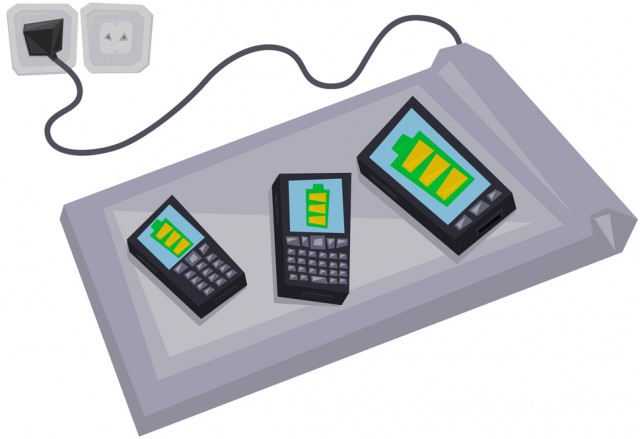
Microsoft, Samsung 'take a leading role' backing Qi wireless charging
Qi is one of the most popular wireless charging standards, used by many companies in devices like chargers, speakers, smartphones and tablets. It adds convenience to such products, giving users the option to top up the battery on their handsets without plugging cables into them. I personally use a Qi wireless charger, made by Nokia, with my Lumia 920 and Google Nexus 7.
One of the hurdles Qi has to overcome to become more popular and attractive to consumers is mass-market support from key players, like smartphone vendors and mobile operators, which can dictate which standard they embrace. Qi appears to be on the right track, as it just added Microsoft and Samsung to its growing list of supporters.

Windows Phone users do crave popular apps, no matter what apologists, fanboys say
Whenever a pundit brings up apps as an irrefutable argument for Windows Phone weaknesses, platform fanboys and apologists quickly point out they could not care less about whatever the Store is then lacking. They may also say that there already are good alternatives available, and major titles -- that are popular on Android and iOS -- are not really that important, when you have live tiles to look at all day. Basically, such an argument is, therefore, a pathetic excuse to bash their beloved platform.
Instagram? "No, thanks, that is for hipsters". Candy Crush? "I do not need that lame game on my Windows Phone as there are better ones available". "Oh, and you are an iPhone/Android fanboy for mentioning this!". You get the gist. But after we get off the comments train, we see that whenever Windows Phone gets a popular app, it quickly rises to the top of the Store. Yes, these users, of which I am proud to be one, do crave major titles, just like everyone else.
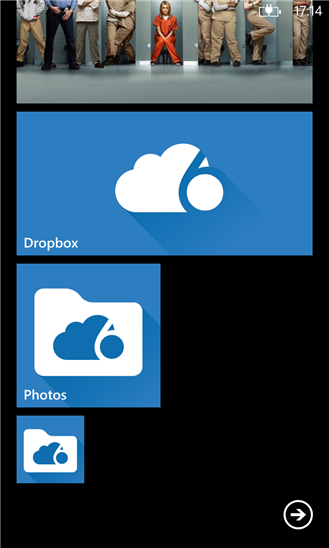
There's finally a great Dropbox client for Windows Phone
Windows Phone may be seeing new, popular titles launched in Store, like Facebook Messenger, Instagram and Vine, but the tiled smartphone operating system continues to lack some notable apps. The reason is major developers are still waiting for the platform to gain more traction before committing.
YouTube is absent, but there are a couple of good clients available that nearly make up for it. But, when it comes to Dropbox a decent selection is virtually non-existent. Part of the reason is the cloud storage service is focusing its resources in mobile on Android and iOS, like many other major companies, and (probably the majority of) Windows Phone users are in OneDrive's backyard already, whether they like it or not. But, if they choose to embrace Dropbox now they can turn to CloudSix for Dropbox.
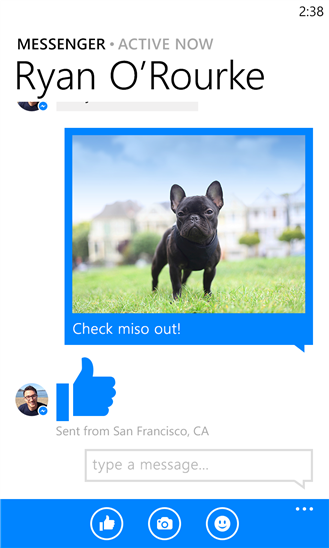
Windows Phone finally gets Facebook Messenger, 'app gap' slowly closing
Windows Phone head Joe Belfiore spoke last year of the Windows Phone app gap, claiming that it would end before the start of 2014. Unfortunately for the platform, that has not turned out to be accurate as there are still lots of great titles that are either missing from Store or offered in a half-baked version on the tiled operating system. The good news is the app gap is actually closing, albeit slowly (and not anytime soon).
Microsoft revealed at MWC 2014 Facebook Messenger will launch on Windows Phone, and the app is finally available in Store today. This is one of the most important wins for the platform, as the service is hugely popular in many markets.

Where have all the fanboys gone? Is brand loyalty dead and buried?
This is a personal account of the way I have noticed the technology markets changing over the years. It is not gospel, and you are welcome (encouraged, if you like) to disagree… It's not all that long ago that brand loyalty was a given; it was almost the default setting for many people. If you got into computing -- and it was something you "got into" rather than just having as part of your life -- you stuck loyally to whatever brand you chose at the start. We could go back to the 70s and look at the birth of personal computing, but as this is my personal account, we'll have to start in the 80s.
I did just manage to sneak into the 70s -- being born in 1979 puts me in the difficult-to-comprehend position of being 34 years old but having seen five decades -- but an interest in computing didn't emerge until some time in the late 80s. I remember there being several computing camps: BBC, Amstrad, Spectrum, Vic and Commodore to name a few. My decision was made for me at an early age when my dad decided to invest in a Commodore 16 Plus 4 (the Plus 4 referring to the fact that the OS featured four built-in applications including a spreadsheet tool, the absurd simplicity of which was not lost on me even at a young age).
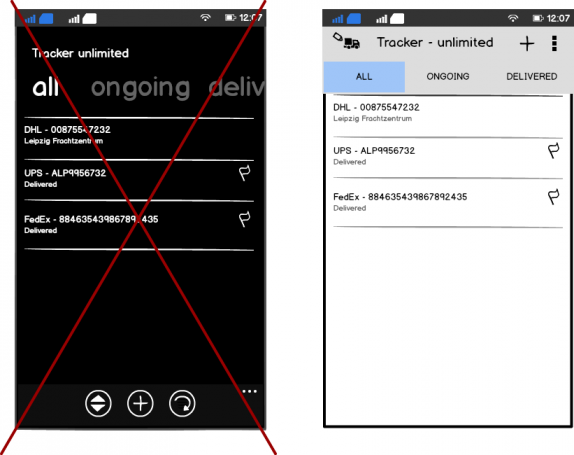
Nokia wants apps for its X lineup to have an Android look and feel
When Nokia officially unveiled its X smartphones it was clear the Finnish company intended its new Android lineup to look similar to Lumia Windows Phones. The internals may be on the low-end side, but the hardware design looks just as premium, undoubtedly aided by the funky colors, and the software... well, the homescreen interface resembles the Windows Phone tiles, which is the dead giveaway as far as this writer can tell.
Some may rightfully point out that X smartphones are superior to Lumias in one major area -- apps. Courtesy of the mature Android ecosystem, Nokia's droids are compatible with hundreds of thousands of offerings, which is more than Windows Phone can tout. It would make sense for Nokia to encourage developers to make their apps more like those on Windows Phone to warm repeat customers to the idea of upgrading to one of its higher-end smartphones, which run Microsoft's tiled operating system. But, Nokia has other plans.
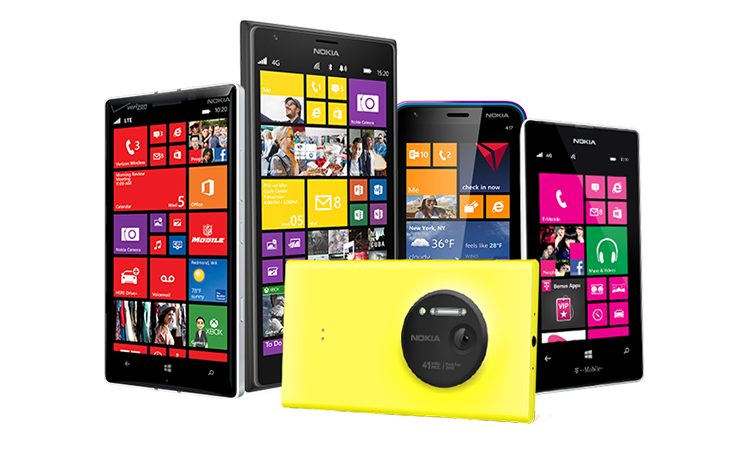
What we know about Windows Phone 8.1 so far
In late-October 2012 Microsoft released Windows Phone 8. Today, it is still the latest available iteration, more than a year after its arrival. Some would say its feature set was outdated when it launched, more so now as both rivals, Android and iOS, have been improved multiple times since, pushing them further ahead of Microsoft's own competitor.
Windows Phone 8.1 is Microsoft's chance to finally catch up to Android and iOS in the feature department, and, for the first time, give its offering a tangible advantage over its more popular adversaries. Windows Phone 8.1 appears to be long overdue when we consider that Android and iOS see one or two major updates each year, and their feature sets are really cutting edge. We know Microsoft revealed that its new smartphone operating system will launch this spring, so let us take a look at what it is known to bring to the table.

Windows Phone will still be in Android and iPhone's shadow four years from now
Even though Windows Phone is definitely making inroads and is considered to be the fastest-growing smartphone operating system, in 2013 its market share came in at less than 4 percent, according to research firms IDC and Strategy Analytics. Consumers are (still) much in love with Android smartphones and iPhones, giving Windows Phone too little attention.
In its latest smartphone market forecast, IDC claims that Windows Phone will still lurk in the shadows four years from now, as its market share in 2018 is estimated to climb to just seven percent. Shipments of devices running the tiled mobile OS are expected to reach 121.8 million units, which would be a huge improvement over the roughly 35 million units in 2013, but still not nearly enough to catch up to Apple's iPhones or Android smartphones, which shipments IDC estimates will reach 249.6 and 1,321.1 million units, respectively.
